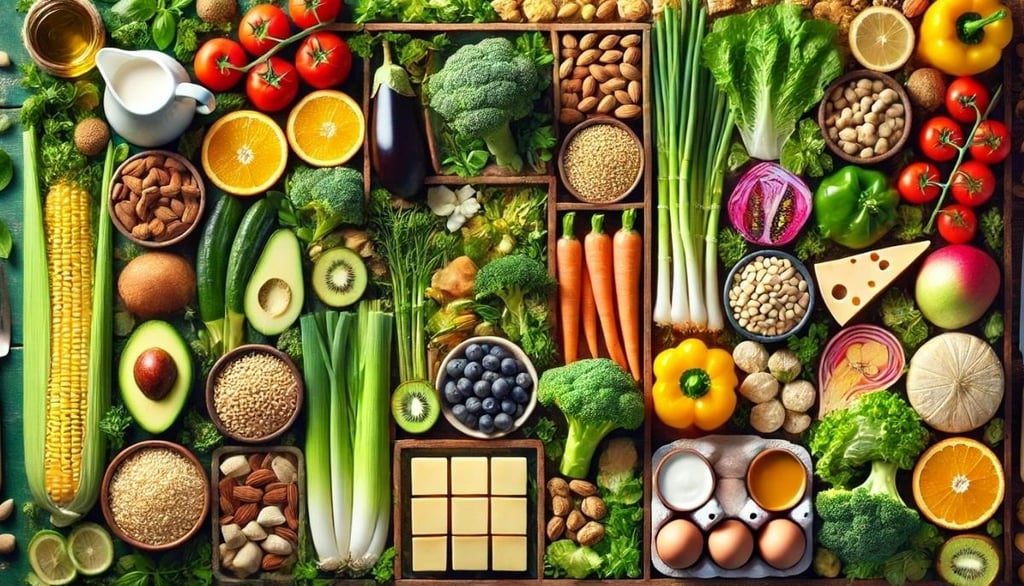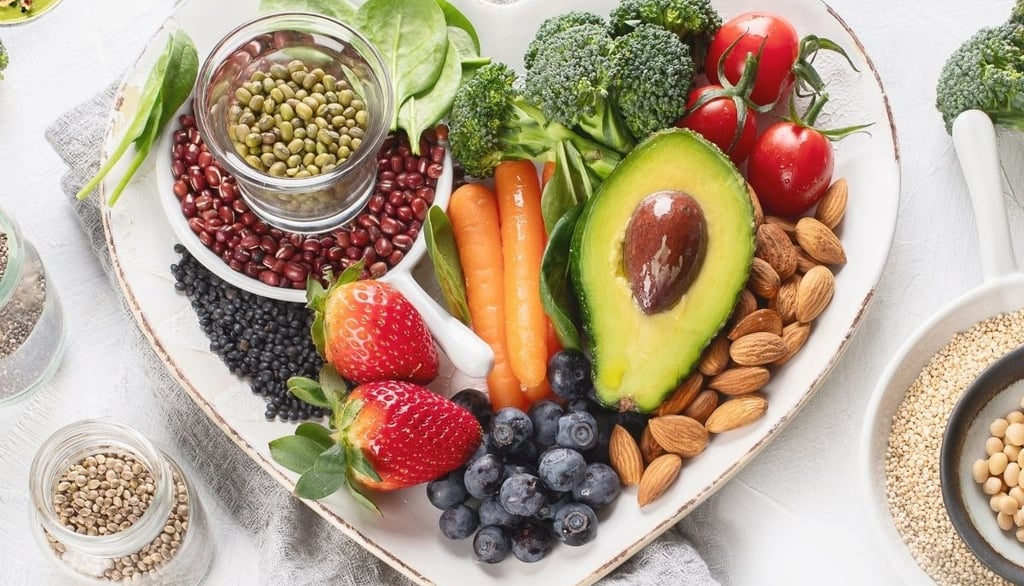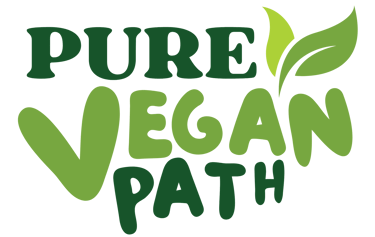Vegan vs Vegetarian - What's the Difference?
Learn the key differences between vegan and vegetarian diets, from food choices to lifestyle ethics, and explore the health benefits of each plant-based approach.
11/12/20244 min read


Understanding the Key Differences Between Vegan and Vegetarian Diets
The terms vegan and vegetarian often appear in discussions around plant-based diets, but the distinction between these two lifestyles goes beyond just what’s on the plate. While both exclude meat, they differ significantly in their principles, health impacts, nutritional needs, and environmental effects. Let’s explore these key differences in detail to help you decide which lifestyle might be better suited for you.
What is Veganism?
Veganism is a lifestyle choice that extends beyond diet. Vegans avoid all animal-derived products, including meat, dairy, eggs, honey, and gelatin. Most vegans also refrain from using any products tested on animals or containing animal-derived ingredients, like leather or wool. This philosophy is rooted in a strong ethical commitment to animal welfare and environmental sustainability. By cutting out all forms of animal exploitation, vegans aim to reduce their impact on animal suffering and promote a more sustainable world.
Types of Vegan Diets
Whole-Food Vegans: Focus on unprocessed, plant-based foods, including fruits, vegetables, legumes, nuts, and seeds.
Raw Vegans: Consume only uncooked and unprocessed plant-based foods to preserve nutrients and enzymes.
Junk Food Vegans: Primarily eat processed vegan products like vegan burgers, cookies, and chips.
Health-Focused Vegans: Prioritize veganism for health benefits, concentrating on nutrient-dense, whole foods.
What is Vegetarianism?
A vegetarian diet excludes meat, fish, and poultry, but it typically includes dairy products and eggs. Vegetarians choose this diet for various reasons, including health, ethical concerns, and environmental impact. Unlike veganism, vegetarianism often does not extend to other lifestyle choices, so many vegetarians may still wear leather or wool.
Types of Vegetarian Diets
Lacto-Vegetarian: Includes dairy products but excludes eggs.
Ovo-Vegetarian: Includes eggs but excludes dairy products.
Lacto-Ovo Vegetarian: The most common type, including both dairy and eggs.
Pescatarian: Includes fish but excludes meat and poultry.
Flexitarian: Primarily plant-based with occasional consumption of meat or fish


Environmental Impact
The environmental impact of vegan and vegetarian diets is one of the most compelling reasons for people to consider either lifestyle. Studies indicate that vegan diets tend to have the lowest carbon footprint, as they exclude all animal agriculture, a major contributor to greenhouse gas emissions, water pollution, and deforestation. Vegetarian diets, while still more sustainable than omnivorous diets, have a slightly higher environmental impact due to the dairy and egg industries
Ethics and Lifestyle Choices
For many, the decision to go vegan is rooted in a deep ethical commitment to animal rights and minimizing harm. Vegans often advocate for animal welfare, choosing cruelty-free products and avoiding animal-based materials like leather, wool, and silk. In contrast, vegetarians might not extend their dietary choices to other aspects of life, though some may make similar lifestyle adjustments.
Pros and Cons of Vegan and Vegetarian Diets
Nutritional Balance
Vegan Diet: May require supplements for vitamin B12, as these are primarily found in animal products.
Vegetarian Diet: Easier to maintain balanced nutrition due to the inclusion of dairy and eggs, which provide essential nutrients like B12.
Environmental Impact
Vegan Diet: Tends to have a lower carbon footprint since it excludes all animal products, which require substantial resources.
Vegetarian Diet: Lower impact than a meat-based diet but generally higher than vegan, due to dairy and egg production.
Ethical Considerations
Vegan Diet: Typically associated with a strong focus on animal rights and avoiding animal exploitation in both diet and lifestyle.
Vegetarian Diet: Focuses mainly on dietary choices, avoiding meat but not necessarily other animal-derived products like leather or wool.
Weight Management
Vegan Diet: Often associated with a lower risk of obesity due to lower-calorie, high-fiber foods.
Vegetarian Diet: Generally beneficial for weight management but may be slightly less effective than vegan diets due to the higher calorie content of dairy.
Gut Health
Vegan Diet: High in fiber but lacks dairy probiotics that benefit gut bacteria.
Vegetarian Diet: Benefits from dairy probiotics, which can support digestive health and promote a balanced gut microbiome.
Conclusion: Choosing Between Vegan and Vegetarian
Deciding between a vegan or vegetarian lifestyle ultimately depends on personal values, health goals, and environmental concerns. Veganism may align more with those committed to comprehensive animal welfare and environmental impact, while vegetarianism offers a more flexible approach with fewer nutritional restrictions. Both lifestyles offer health benefits, and with mindful planning, either can be a sustainable and rewarding choice.


Key Dietary Differences
1. Animal Products
Vegans strictly avoid all animal products, while vegetarians might consume dairy, eggs, or honey. This difference has nutritional implications, as vegans must find plant-based sources for nutrients like vitamin B12, and omega-3 fatty acids—typically found in animal products. Vegetarians, with access to dairy and eggs, often find it easier to meet these nutritional needs without supplementation.
2. Nutritional Needs and Considerations
Both vegan and vegetarian diets require careful planning to meet nutritional needs, but vegans often need to be more mindful of certain nutrients:
Vitamin B12: Primarily found in animal products, B12 must be supplemented in vegan diets.
Omega-3 Fatty Acids: Can be sourced from flaxseeds, chia seeds, and walnuts.
.
Health Benefits and Challenges
1. Weight Management
Research suggests that both vegans and vegetarians generally have lower body weights than omnivores. Vegan diets, being more restrictive, are often associated with better weight management due to the lower intake of saturated fats and higher fiber content. Studies have shown that individuals on vegan diets tend to have lower body fat and find it easier to maintain a healthy weight over time
2. Disease Prevention
Both diets can reduce the risk of chronic diseases such as heart disease, diabetes, and certain cancers. Vegan diets, in particular, show greater benefits in reducing cancer risk due to the elimination of all animal-derived foods, which may contain hormones and other compounds associated with cancer risk. Vegetarians also benefit, especially in terms of heart health, from avoiding meat, though they may not see the same protective effect against certain cancers as vegans.
3. Gut Health
Plant-based diets promote gut health by increasing fiber intake, which supports beneficial gut bacteria. However, some vegetarians benefit from probiotic-rich dairy products, which can aid digestion and improve gut flora. Vegans, without access to these dairy-based probiotics, may need to consume fermented plant-based foods like kimchi, sauerkraut, or kombucha
Pure Vegan Path
Explore plant-based living and delicious recipes.
Contact
Newsletter
info@pureveganpath.com
123-456-7890
© 2024. All rights reserved.
